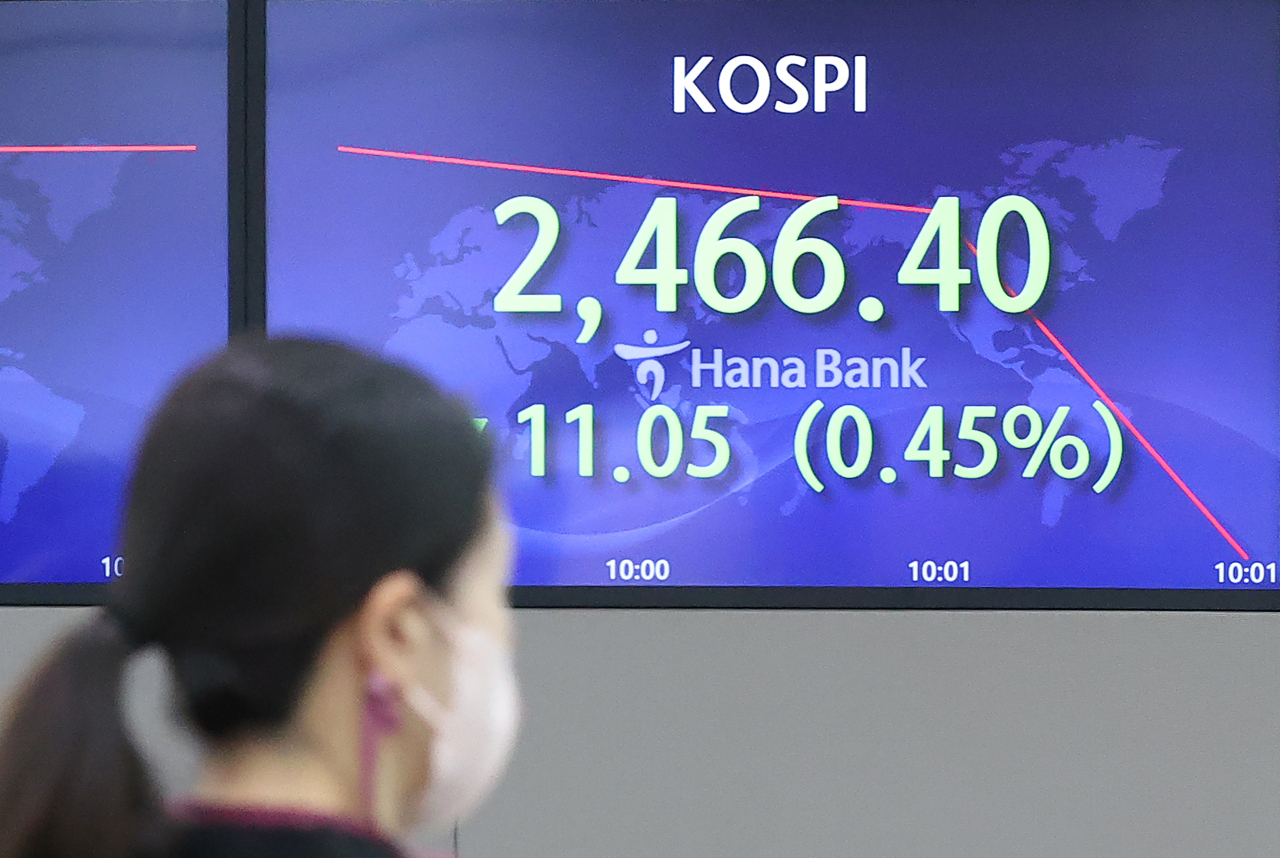S. Korea may delay imposing capital gains tax on stocks
Brokerages, investors resist fiercely to new tax system, citing stock market losses
By Jung Min-kyungPublished : Nov. 17, 2022 - 15:23

South Korea’s financial authorities on Thursday were mulling a delay on the adoption of the law to levy a capital gains tax on stock investment slated to start next year.
In a morning meeting, the regulator Financial Services Commission met with market analysts from 10 local brokerages to address the effects of the new tax system on the market, according to industry sources. The move was widely received by onlookers as a sign that the authorities are actively considering the delay of the tax revision.
Analysts at the meeting expressed concerns that the new tax revision would provoke big investors to leave the market, which could lead to “chaos,” sources said. They reminded the authorities that the current market conditions are “different” compared to that of 2020, when the tax revision plan was first announced by the previous administration.
The ruling People Power Party and the main opposition Democratic Party have locked horns over the issue. The PPP has been calling for a delay of the adoption until 2025, while the DP has been proposing to carry out the plans according to schedule.
In 2020, the previous Moon Jae-in administration announced that a new capital gains tax would be levied on stock investments from Jan. 1, 2023. All investors who trade listed shares with annual capital gains exceeding 50 million won ($37,252) will be subject to a tax rate of 20 percent. Investors that hold more than 300 million won would be levied a 25 percent tax rate.
Instead, stock transactions tax would be lowered and the revision would exempt retail investors with annual capital gains below 20 million won.
With the opinions over the new capital gains tax code divided, experts say that financial regulators and lawmakers should add details to the proposed law, comparing it with counterparts from other major economies.
The United States levies different capital tax rates depending on how long the investor has held the asset for, a report by the Korea Institute of Public Finance showed. It also gives tax benefits to investors seeking to sell stocks held for longer than a year. Some or all of long-term net capital gain may be taxed at 0% if the investor’s taxable income is less than or equal to $40,400 for single people or $80,800 for married couples filing jointly.
Korea currently levies a capital gains tax on major shareholders who own stocks worth more than 1 billion won in a single company. Their stake must exceed 1 percent of total shares listed on the benchmark Kospi or 2 percent of total shares listed on the secondary Kosdaq market if they are subject to a capital gains tax.
(mkjung@heraldcorp.com)
In a morning meeting, the regulator Financial Services Commission met with market analysts from 10 local brokerages to address the effects of the new tax system on the market, according to industry sources. The move was widely received by onlookers as a sign that the authorities are actively considering the delay of the tax revision.
Analysts at the meeting expressed concerns that the new tax revision would provoke big investors to leave the market, which could lead to “chaos,” sources said. They reminded the authorities that the current market conditions are “different” compared to that of 2020, when the tax revision plan was first announced by the previous administration.
The ruling People Power Party and the main opposition Democratic Party have locked horns over the issue. The PPP has been calling for a delay of the adoption until 2025, while the DP has been proposing to carry out the plans according to schedule.
In 2020, the previous Moon Jae-in administration announced that a new capital gains tax would be levied on stock investments from Jan. 1, 2023. All investors who trade listed shares with annual capital gains exceeding 50 million won ($37,252) will be subject to a tax rate of 20 percent. Investors that hold more than 300 million won would be levied a 25 percent tax rate.
Instead, stock transactions tax would be lowered and the revision would exempt retail investors with annual capital gains below 20 million won.
With the opinions over the new capital gains tax code divided, experts say that financial regulators and lawmakers should add details to the proposed law, comparing it with counterparts from other major economies.
The United States levies different capital tax rates depending on how long the investor has held the asset for, a report by the Korea Institute of Public Finance showed. It also gives tax benefits to investors seeking to sell stocks held for longer than a year. Some or all of long-term net capital gain may be taxed at 0% if the investor’s taxable income is less than or equal to $40,400 for single people or $80,800 for married couples filing jointly.
Korea currently levies a capital gains tax on major shareholders who own stocks worth more than 1 billion won in a single company. Their stake must exceed 1 percent of total shares listed on the benchmark Kospi or 2 percent of total shares listed on the secondary Kosdaq market if they are subject to a capital gains tax.
(mkjung@heraldcorp.com)



![[Exclusive] Korean military set to ban iPhones over 'security' concerns](http://res.heraldm.com/phpwas/restmb_idxmake.php?idx=644&simg=/content/image/2024/04/23/20240423050599_0.jpg&u=20240423183955)

![[Graphic News] 77% of young Koreans still financially dependent](http://res.heraldm.com/phpwas/restmb_idxmake.php?idx=644&simg=/content/image/2024/04/22/20240422050762_0.gif&u=)



![[Pressure points] Leggings in public: Fashion statement or social faux pas?](http://res.heraldm.com/phpwas/restmb_idxmake.php?idx=644&simg=/content/image/2024/04/23/20240423050669_0.jpg&u=)










